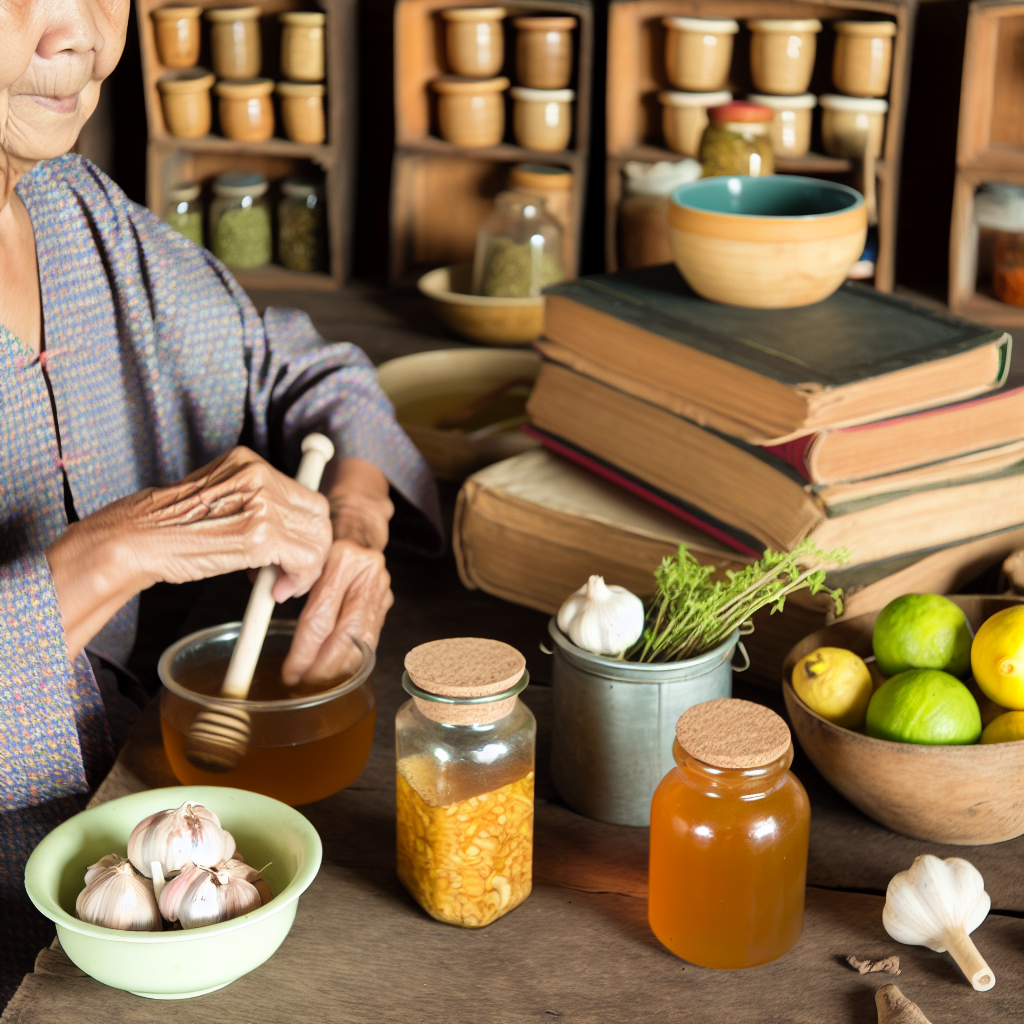Grandmother’s Remedies in the Lab: Scientific Validation of 10 Kitchen Cures
For generations, our grandmothers have passed down home remedies as cherished oral traditions. From soothing honey and lemon for a sore throat to ginger tea for nausea, these folk cures have earned a solid place in kitchens across the globe. Recent scientific advances are forging a bridge between ancient wisdom and empirical evidence, introducing a sharper lens through which we now evaluate natural and herbal remedies.
This article dives into the modern scientific studies that have validated 10 of the most common kitchen-based remedies, once referred to simply as “Grandmother’s cures.” From the anti-inflammatory potential of turmeric to the probiotic powers of fermented foods, we explore how laboratory findings support these time-tested treatments.
1. Turmeric: The Golden Anti-Inflammatory
Long touted for its anti-inflammatory properties, turmeric’s active component, curcumin, has been intensely studied. According to a 2017 review, curcumin exhibits powerful antioxidant, anti-inflammatory, and even anti-cancer properties. Clinical trials have found turmeric to be effective in managing conditions such as arthritis and metabolic syndrome.
2. Honey: Nature’s Antimicrobial Sweetener
A staple in many traditional kitchens, honey has been recognized by science for its antimicrobial qualities. A study found honey to be more effective than over-the-counter cough suppressants for treating upper respiratory tract infections in children.
3. Ginger: A Time-Tested Tonic for Nausea
Used for centuries to treat gastrointestinal discomfort, ginger stands among the most researched natural remedies. A systematic review concluded that ginger significantly reduces nausea during pregnancy, chemotherapy, and post-surgery.
4. Garlic: Heart Health from the Pantry
Known for its heart-friendly benefits, garlic’s allicin compounds have been documented to lower blood pressure and cholesterol. A meta-analysis confirmed garlic’s cholesterol-lowering effects over placebo.
5. Apple Cider Vinegar: Blood Sugar Balance in a Bottle
Often recommended to balance blood sugar levels, apple cider vinegar (ACV) has been examined in various studies. One study found that ACV ingestion with meals significantly improved insulin sensitivity in insulin-resistant individuals.
6. Peppermint: Soothing the Stomach Naturally
Peppermint oil has long been used for its soothing effects on the digestive system. In a double-blind trial, peppermint oil was shown to significantly reduce symptoms of irritable bowel syndrome (IBS).
7. Fermented Foods: Probiotics for Gut Power
Fermented kitchen staples like yogurt and kefir have proven probiotic benefits. A review links probiotic intake with improved gut flora, immune regulation, and reduced inflammation.
8. Clove: Numbing Relief for Toothache
Clove oil contains eugenol, a natural anesthetic and antiseptic compound. A study found clove-based gels to be as effective as benzocaine in relieving dental pain.
9. Cinnamon: A Sweet Solution for Type 2 Diabetes
Research has increasingly supported cinnamon’s ability to aid in managing blood glucose. A meta-analysis concluded that cinnamon intake is associated with a statistically significant decrease in fasting blood glucose.
10. Chamomile: The Calming Cup for Anxiety and Sleep
Traditionally consumed for relaxation, chamomile’s calming effects have piqued scientific interest. A study found that long-term chamomile extract significantly reduced moderate-to-severe symptoms of generalized anxiety disorder (GAD).
Conclusion: Bridging the Gap Between Tradition and Science
The rediscovery of natural and home-based remedies is a meaningful convergence of traditional knowledge with scientific inquiry. As validated by numerous clinical and academic studies, many of the herbs, spices, and common foods used in kitchen cures carry well-documented health benefits.
For those seeking to adopt a more natural and preventative approach to wellness, these grandmother-approved remedies offer a safe and cost-effective adjunct to conventional treatments. From reducing inflammation and balancing blood sugar to soothing digestive issues and calming the nerves, nature’s pharmacy has been hiding in plain sight — on our spice racks and in our pantries.
While these remedies show promise, they are best used as part of a balanced lifestyle and under the guidance of healthcare professionals. Grandmother’s remedies are finally being celebrated not just for their warmth and tradition, but for their legitimate place in modern healing.
References
- Turmeric and curcumin
- Honey for cough
- Ginger for nausea
- Garlic and heart health
- Apple cider vinegar and blood sugar
- Peppermint for IBS
- Fermented foods for gut health
- Clove oil for toothache
- Cinnamon for type 2 diabetes
- Chamomile and anxiety
Concise Summary:
This article explores the scientific validation of 10 common kitchen-based remedies, including turmeric, honey, ginger, garlic, apple cider vinegar, peppermint, fermented foods, clove, cinnamon, and chamomile. The article highlights how recent research has confirmed the health benefits of these traditional “grandmother’s cures,” bridging the gap between ancient wisdom and modern evidence-based medicine.

Dominic E. is a passionate filmmaker navigating the exciting intersection of art and science. By day, he delves into the complexities of the human body as a full-time medical writer, meticulously translating intricate medical concepts into accessible and engaging narratives. By night, he explores the boundless realm of cinematic storytelling, crafting narratives that evoke emotion and challenge perspectives.
Film Student and Full-time Medical Writer for ContentVendor.com




